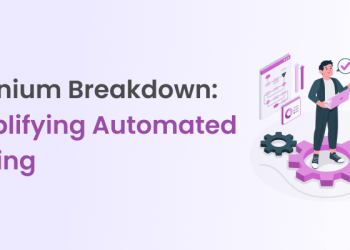A programmable logic controller (PLC) is a specialised computer that is used for automating processes within an industrial network. For example, PLCs are typically tough enough to handle abuse on a production floor. Additionally, PLCs are specifically programmed to meet precise industrial needs, with multiple special inputs and outputs.
Artificial intelligence (AI) is used to enable PLCs to make logic-based decisions for machines or other automated processes based on their inputs and outputs. PLCs rely on sensors attached to machines to extract these inputs. Finally, the PLC analyses this information and triggers output according to certain pre-set parameters.
With the advancement of various technologies, the scope of PLCs has grown tremendously. Steel, automobile, chemical, and energy industries all use PLCs in various applications.
- Monitoring production: One main purpose of a PLC is to monitor the production process. For example, in the food packaging industry, engineers are able to monitor production without any problem. The PLC can be integrated into different machines including automatic beverage filling machines or labelling machines to make the whole process efficient.
- Recording data: In the glass industry, the use of PLCs in conjunction with bus technology helps control both material ratios and processes. Considering that this industry uses sophisticated and complex processes, PLC technology is often utilised for both data recording and quality control.
- Produce high quality products: The correct proportions of raw materials must be mixed in a particular order to produce high quality products. For example, in the cement industry, a kiln must be able to mix the right proportions of raw materials to produce high-quality cement. For the same reason, a cement company’s coal kiln, ball milling system, and shaft kiln must all be controlled by a distributed control system.
- Maintaining the equipment: PLCs can be used to control and maintain equipment in many sectors. For instance, in the paper industry, PLCs assist in controlling and maintaining the equipment that manufactures and processes papers at high speed. The PLCs are used for various processes, from book production to offset printing, etc.
- Climate control: It is often a major responsibility to maintain a heating, ventilating, and air conditioning system, regardless of the industry. Controlling the climate and maintaining high levels of indoor air quality is vital in any office building, and more complex systems are often required by manufacturing or industrial companies that must maintain specific temperature or humidity levels for raw materials or end products.
- Production lines: In almost every industry, a production line exists. Incorporating PLCs into production lines has resulted in a rise in speed, accuracy, and effectiveness of production, along with a reduction in labour costs, operational costs, packaging time, and hazards.
- Remote management: The pandemic had led the way to find new ways to work remotely. PLC systems have allowed not just sharing of project files and syncing of updates, but also software consultants to take remote control of a facility’s computer system in order to upload and download necessary changes.
If you are looking for a programmable logic controller, take a look at our website to choose one that will meet your specific requirements.














